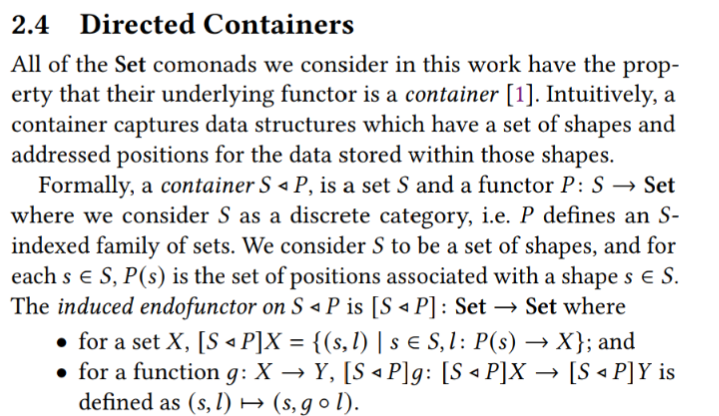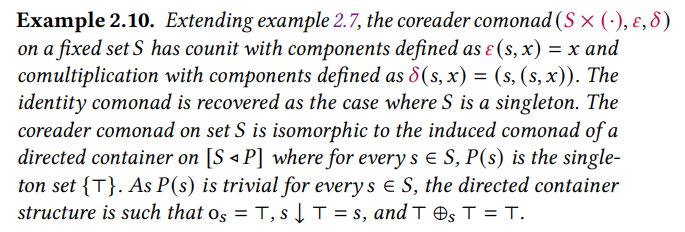Here [1] we see a paper that describes when you can compose a directed container over distribution monads. Here
Here is their definition of a directed container
Here is their definition of the coreader comonad.
A directed container will have a kind of graph structure. For instance, consider the nonempty list comonad. Lists are just chains with a head and tail so the graph starts us just chains. So $S$ is just lists.
What I am wondering about is what is the graph structure of the coreader comonad seen as a directed container? In particular, I want to know if the graph structure resembles a complete lattice, and hence a dcpo. What are the restrictions on the set $S$? For instance, in the binary tree directed container, S is literally binary trees. What kinds of shapes, $s$, admit a coreader comonad? What are some examples of coreader commands where we are interested in interesting shapes $S$? Can we just outright say that $S$ is the set of all dcpos? Is it possible the positions $P(S) = \{ \top \}$ are the least upper bounds for each dcpo in $S$?
Edit
The coreader comonad is related to the quantum reader monad. This reader is then based on the complete lattice of protection operators on a hilbert space. There seems to be something non-trivial to my idea.
[1] Karamlou, Amin, and Nihil Shah. "No Go Theorems: Directed Containers That Do Not Distribute Over Distribution Monads." Proceedings of the 39th Annual ACM/IEEE Symposium on Logic in Computer Science. 2024.


